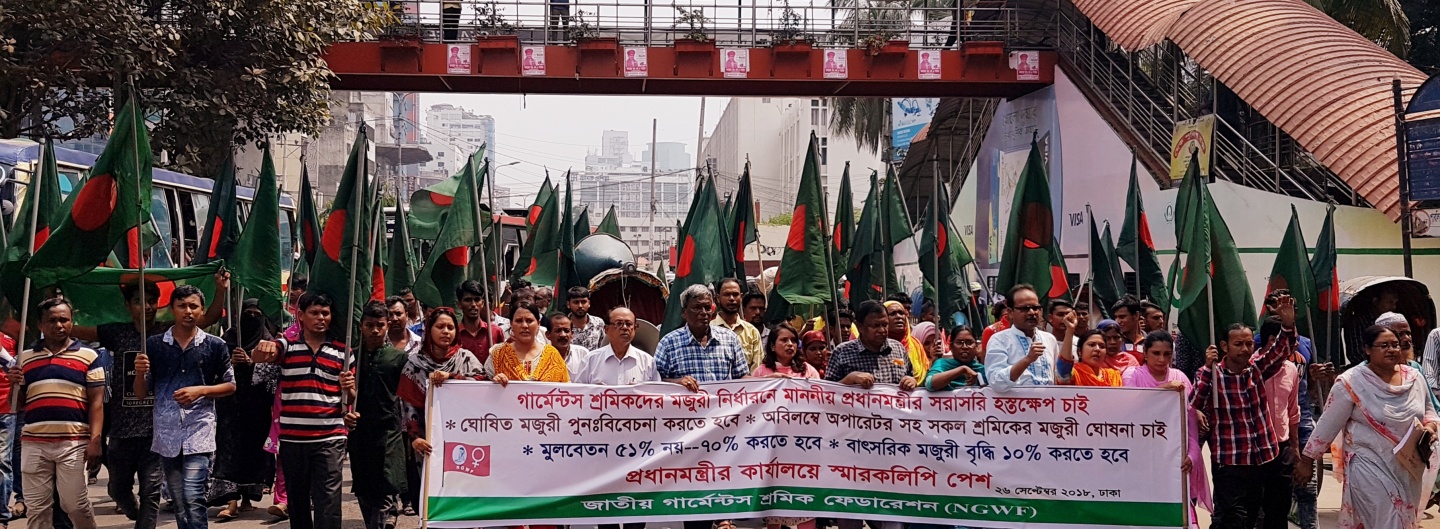2 October, 2018The IndustriALL Bangladesh Council has called for an immediate review of the new minimum wage, saying it fails to meet workers’ expectations. They demand that the new rate be doubled.
The council – made up of IndustriALL Global Union affiliates in Bangladesh – said that the Taka 8,000 (US $95) per month minimum wage is inadequate to meet the living costs of Bangladeshi garment workers. The council pointed out that rent has increased by up to 50 per cent, and other living costs have also increased.
The new minimum wage was announced on 13 September, and is due to be implemented in December. It is a 51 per cent increase on the current minimum wage, which was set in 2013 as part of the government’s response to the collapse of the Rana Plaza factory that killed 1,130 people.
Unions reject the proposed wage, saying it should be doubled to Taka 16,000 (US $190). Currently, state-owned factories pay this amount, and unions expect the minimum wage to at least match the state baseline. On 26 September, workers held a rally in Dhaka to protest against the wage, and demand the intervention of the prime minister.
No other wage rates have been announced yet, but the minimum wage is crucial because it is a baseline for all other wage levels, covering millions of factory workers. Workers rely on overtime and other supplements to survive. Overtime pay, festival bonus, service benefits and retirement benefits are all determined by the minimum wage.
Unions are calling for a wage settlement that outlines wages for other grades, as well as the reduction of grades from seven to five. They want a policy to promote workers to a higher grade after two years, an increase in the apprentice wages from Taka 4,180 (US $49) to Taka 10,000 (US $118), and a reduction of the training period from six to three months. Piece rate wages should be decided before work commences, and there should be a ten per cent annual increase in the minimum wage, to keep pace with inflation.
IndustriALL assistant general secretary Jenny Holdcroft said:
“This decision once again shows the inadequacy of the minimum wage system to support living wages for Bangladesh’s garment workers. Sectoral collective bargaining between employers and trade unions is urgently needed to enable wage increases to be agreed for all categories of workers that take proper account of rising living costs.”
Last year, Bangladesh produced US $30 billion worth of garments for major global retailers. The industry accounts for 80 per cent of the country’s exports, and employs mostly women. Bangladeshi factory owners say that they are squeezed by global retailers who have not increased what they pay.
In December 2016, the Bangladeshi government brutally cracked down on a workers’ wage protest, arresting many union leaders.


